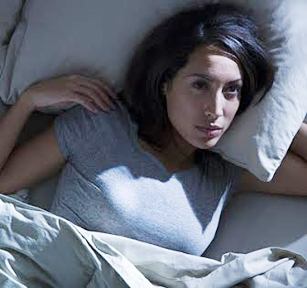|
Study conducted by Philips Healthcare and Respironics
to mark World Sleep Day reveals 90% Asians are:
Sleep deprived
More than 100 million people globally suffer from obstructive sleep
apnoea (OSA). Chronic sleep or respiratory conditions can have
devastating effects if not treated or diagnosed, and it is estimated
that 80 percent of patients with OSA remain undiagnosed, which can
impact long-term health by turning sleep or breathing into a burden.
Sleep debt is a global problem
While the occasional sleepless night can be frustrating and
inconvenient, people who consistently suffer from inadequate sleep can
experience poor academic or work performance. According to a 2015
Philips Respironics survey that surveyed people in 10 countries, 96 per
cent said sleep was valuable to them and 87 per cent ranked sleep as an
influence on their overall health and wellbeing; however of those
surveyed, only 17 per cent consistently slept through the night.
 Over
90 per cent of Asians are sleep deprived, get less than 8 hours of sleep
per night and more than 54 per cent of Sleep Apnea patients are already
suffering from diabetes and high blood pressure Over
90 per cent of Asians are sleep deprived, get less than 8 hours of sleep
per night and more than 54 per cent of Sleep Apnea patients are already
suffering from diabetes and high blood pressure
Sleep apnea is a common sleep disorder characterised by repeated
interruptions in breathing throughout the sleep cycle. These
interruptions, called apneas, are caused by the collapse of soft tissue
in the airway, which prevents oxygen from reaching the lungs. Weak
muscles in the airway, a large tongue, obesity, and other factors may
cause airway tissue to collapse and obstruct breathing. Sleep apnea
disrupts the sleep cycle and can dramatically impact energy, mental
performance, and long term health. In some cases, if left untreated,
sleep apnea can be fatal.
You are at risk for sleep apnoea if you have the following
Night-time symptoms: Loud persistent snoring, pauses in breathing
Choking or gasping for air during sleep, restless sleep or frequent
visits to the bathroom
Daytime symptoms: Early morning headaches, excessive daytime fatigue,
poor concentration, depression or irritability sleepiness during routine
activities In recent years, Philips has made a significant effort to
encourage people to be screened for OSA and other sleep disorders.
Philips offers a host of resources to patients on its site
www.sleepapnea.com showing a continued dedication to improving the lives
of patients suffering from OSA or other serious sleep disorders. Along
with its online resource, Philips encourages people with poor sleep
habits to take an online risk assessment test to determine their risk
level for obstructive sleep apnoea (OSA). Globally, it is estimated that
100 million people suffer from OSA, with an overwhelming 80% of them
remaining undiagnosed. The online risk assessment tool is designed to
recommend those at high risk for OSA follow up with their healthcare
provider.
Philips' commitment to sleep therapy started in 1985 with the first
commercial Continuous Positive Airway Pressure (CPAP) machine. Now, the
company offers a suite of simple to advanced fixed CPAP, auto-CPAP, and
bi-level therapy systems that help to improve comfort and compliance for
sleep-disordered breathing patients. In addition, Philips' complete line
of nasal, full-face, minimal-contact, and paediatric CPAP masks reflect
the company's commitment to innovation and meeting patient and business
needs, with various styles available for comfort, compliance and
mobility. |

